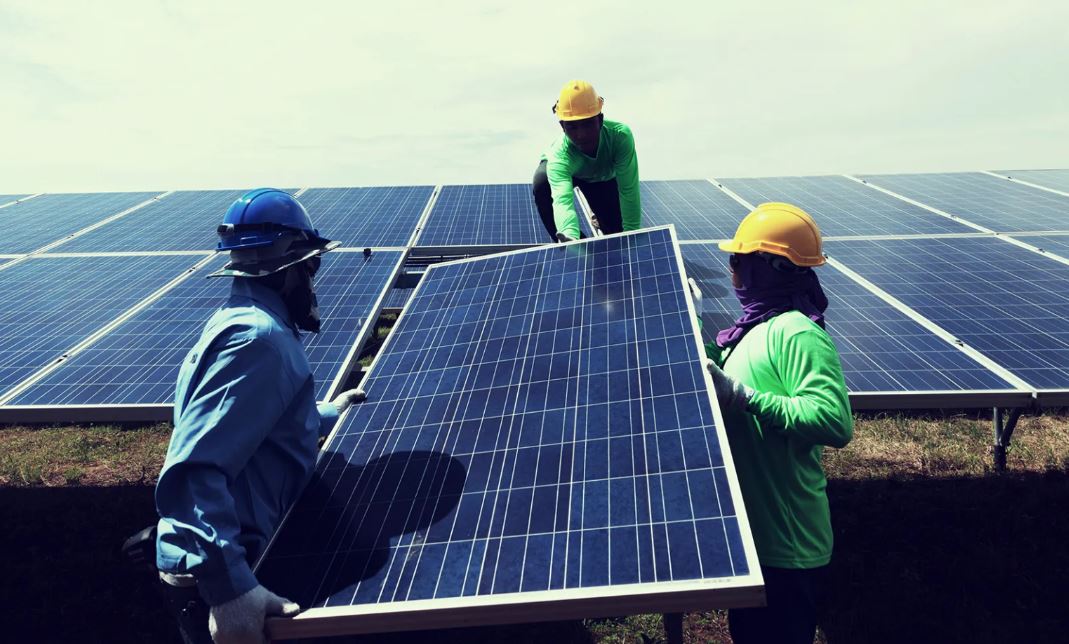The Nigerian government plans to ban the importation of solar panels to boost local production and fast-track the country’s shift to clean energy.
The Minister of Science and Technology, Uche Nnaji, on March 26, announced the proposed ban at the NEV T6 electric bus introduction in Abuja.
This policy draws on Presidential Executive Order No. 5 and gives locally manufactured products top priority. Using private companies stepping up and Nigeria’s solar facilities like NASENI‘s 5MW facility in Karshi, the action uses the nation’s lithium supplies to reduce reliance on import panels. Still, this choice sets both opportunity and risk in the middle of an energy crisis.
Read also: Payhippo evolves into Rivy, secures $4 million for clean energy in Nigeria
Solar panels in Nigeria: Addressing an energy crisis
Nigeria’s energy woes are stark: over 85 million lack reliable power and electricity tariffs have spiked to N225 per kWh for Band A users.
In Q4 2024, import panels worth N237.3 billion flooded in, mostly from China, per the National Bureau of Statistics, as Nigerians sought solar panels to escape fuel costs, topping N1,000 per litre. The government sees banning import panels as a way to boost local solar plants, create jobs, and lower costs long-term.
However, with local production at just 50 MW against 6.16 GW of annual imports, the gap is glaring.
Clean Energy Push: Opportunities for solar plants
The human stakes are high. Solar panels power small businesses, rural clinics, and homes, with firms like Arnergy raising $3 million in 2024 to expand clean energy access. Banning import panels could funnel investment into Nigeria’s solar plants, tapping lithium for batteries and supporting off-grid solutions.
Minister Nnaji, off-grid for three years himself, envisions solar powering institutions, cutting emissions—Nigeria ranks second in Africa for carbon output—and aligning with global clean energy goals.
Implications of a ban on solar panels ban:
The policy’s timing raises red flags. Solar financing startups, key to scaling clean energy, depend on import panels for quality and volume. The Nigerian Customs Service’s prior 10 percent duty on solar panels already strained the sector; a full ban could choke supply, especially with only two assembly plants operational.
Posts on X reflect scepticism, with users questioning the lack of studies and fearing monopolistic intent.
Read also: FG opens hybrid electric vehicle charging facility in Abuja
Balancing clean energy and solar panel supply
The government ties this to reforms like the 2022 Power Sector Bill, but execution is critical. Nigeria’s solar plants need massive scaling to meet demand or the ban risks shortages. A phased transition—blending import panels with growing local output—could stabilise the shift. The Nigerian Content Development and Monitoring Board (NCDMB), adept at localising oil and gas, could oversee quality and capacity for clean energy. The Renewable Energy Association of Nigeria has pushed for tariff relief, not bans, to keep solar panels affordable for rural users and SMEs.
Nigeria’s gamble could make it a clean energy leader or falter under unprepared infrastructure. Success demands rapid production boosts, startup support, and consumer education. As solar panels light up lives in a power-starved nation, this policy’s outcome is a story still unfolding.





Leave a Reply